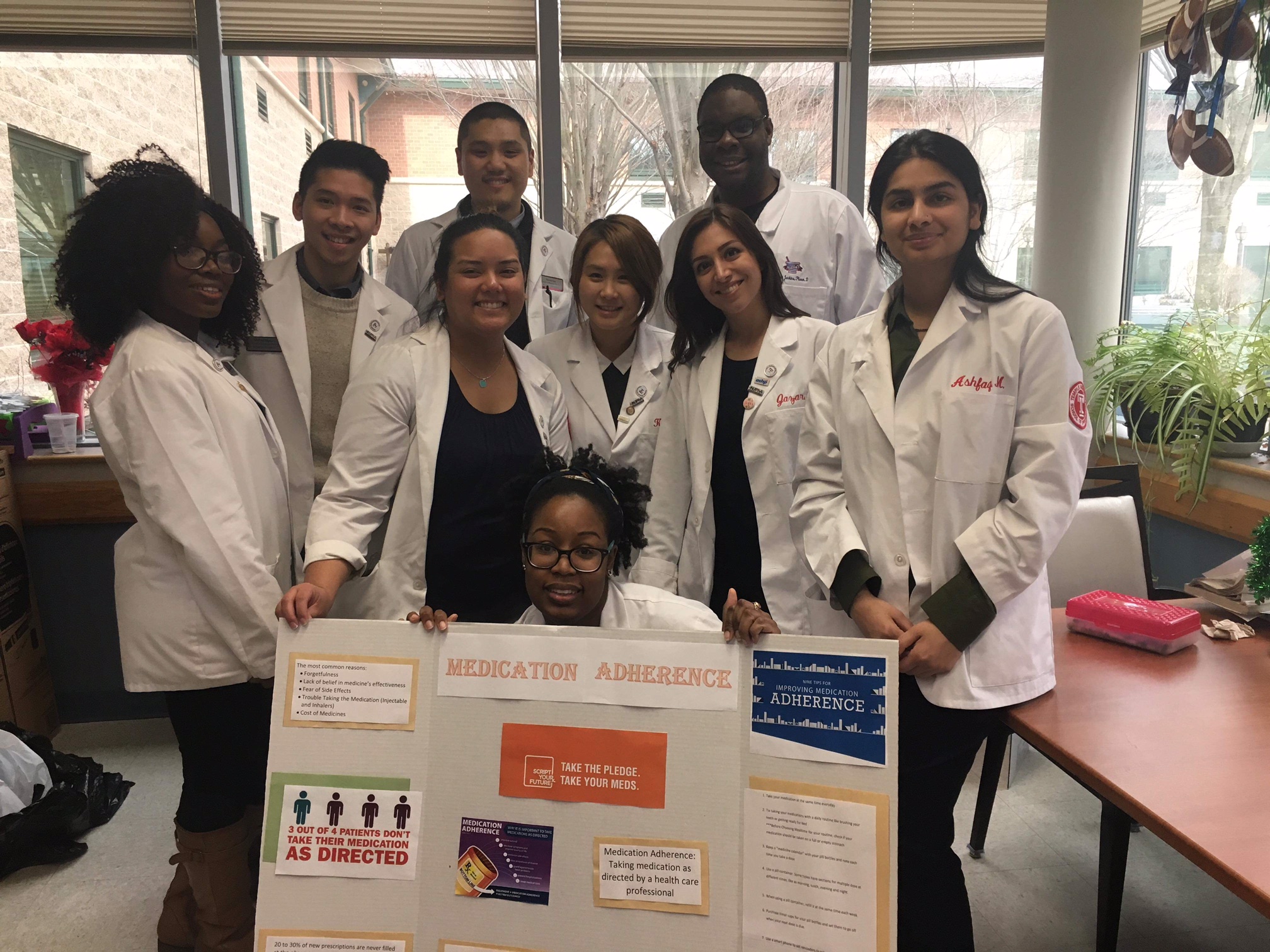NCL health policy updates | Health Advisory Council Newsletter | 2018 Q1
NCL health policy at work
Script Your Future Medication Adherence Team Challenge

In January, NCL launched the seventh annual Medication Adherence Team Challenge. From January 15 through March 16, inter-professional teams—including student pharmacists, nurses, doctors, and others—implemented outreach activities in their communities to raise awareness and improve understanding about medication adherence, using Script Your Future. Since the Challenge began in 2011, more than 12,000 future health care professionals have directly counseled nearly 50,000 patients and reached more than 23 million consumers about the importance of medication adherence.
Stay tuned for NCL’s announcement of this year’s winners in May.
Protect Our Care Coalition and Association Health Plans
As part of the Protect Our Care Coalition, NCL remains actively engaged in the nationwide effort to protect the Affordable Care Act, Medicare, and Medicaid. In March, NCL issued a statement and joined a group letter expressing concerns that the Trump Administration’s proposed expansion of Association Health Plans (AHPs) would weaken consumer protections and undermine and destabilize the individual marketplace by heightening adverse selection. NCL worries that the proposal would open the floodgates to greater fraud and insolvencies, putting consumers at risk of unpaid medical bills, and threatening the availability and affordability of comprehensive coverage for many small employers and individual consumers.
America’s Health Insurance Plans (AHIP) ENGAGE Conference
On March 6, Karin Bolte, NCL’s Senior Director of Health Policy, participated in a “fireside chat” with David Merritt, AHIP’s Executive Vice President for Public Affairs & Strategic Initiatives, at AHIP’s ENGAGE conference for health plan communicators. Speaking on the topic of “How Americans Think about Health Coverage,” Karin and David discussed the take-aways from the 2017 health care debate and how the debate shaped the way consumers perceive coverage and health care; the outlook for the 2018 debate; drug pricing and medication adherence; the opioid crisis; and how health plans can better communicate with their members.
Dietary supplements
More than 170 million consumers in the United States use dietary supplements, and they should be confident that those supplements are safe, quality products that are manufactured appropriately and are accurately labeled regarding ingredients and claims. As an original member of the Dietary Supplements Quality Collaborative (DSQC), NCL is working with 25 organizations that are committed to advancing the quality and safety of products marketed as dietary supplements. To that end, NCL recently joined with leading public health and consumer organizations to urge Congress to double the budget of FDA’s Office of Dietary Supplement Programs to help create and maintain a safer, fairer, and more transparent dietary supplement marketplace.
Right to Try legislation
In March, NCL coordinated with our colleagues in the patient, consumer, and public health communities to reach out to Congress to express opposition to the latest version of Right to Try legislation (H.R. 5247), which we believe would create a dangerous, uncharted pathway for accessing experimental medications that have not been shown to be safe or effective. While H.R. 5247 includes patient safety improvements compared to previous versions of the legislation, NCL and our allies reiterated our concerns with creating a secondary pathway for accessing investigational therapies outside of clinical trials that would remove FDA approval and consultation. NCL believes that FDA’s existing expanded access program achieves the right balance between facilitating patient access and providing appropriate protections for patients, without undermining the clinical trials process.
Unfortunately, on March 21, the bill passed the House 267 to 149. The bill now heads to the Senate, which passed its own Right to Try legislation over the summer by unanimous consent. For reasons noted here, NCL will continue to argue against this misguided legislation.
Counterfeit drugs
NCL is still seeking partners for our Counterfeit Drugs Consumer Education Campaign. Working together, NCL’s Health and Fraud teams will develop consumer education content to be housed at NCL’s Fraud.org. The content will focus on the following elements:
- Examining the threat and sharing real life situations related to the online purchase of unsafe counterfeit medications;
- Redirecting consumers to safe purchasing websites;
- Educating consumers on smart purchasing practices and highlighting opportunities for cost savings, including practical tools, tips, and websites; and
- Providing a channel for consumers to access enforcement bodies such as the FDA, MedWatch, and other appropriate resources, in order for them to report their personal medication concern to the proper authorities.
Please contact Lee Granados, NCL’s Senior Director of Development, at leeg@nclnet.org about how your organization can join this resource-rich platform to educate consumers on making smart decisions.














